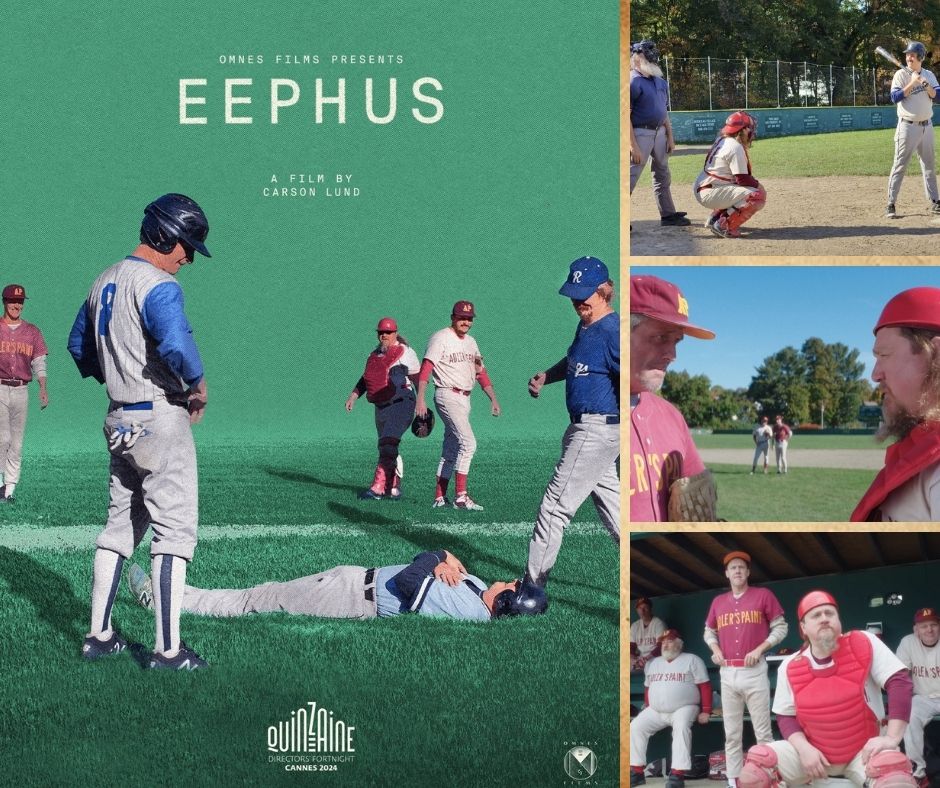Eephus
One Last Game Under the Autumn Sky.

I vividly remember my college days when, every Friday night, my friends would pick me up, and we’d head to a soccer field. It wasn’t just about the game. Some of the guys were genuinely great players, some even with professional experience, while others—like me—could barely kick a ball. But none of that mattered. It was tradition, a way to close the week, and, more than anything, a chance to “hang with the boys.” Over time, though, things started to change. A few players got busy, others moved away, and little by little, our numbers dwindled. What once felt like an unshakable routine slowly faded, until one day, we just stopped showing up.
In Eephus, the end of an era comes in a more definitive way. Set in a small Massachusetts town, the film revolves around a group of longtime baseball players who learn that their public field is being shut down to make way for a new school. Many of them are well past their prime, having long since built families and careers, but they’ve kept this ritual alive. Now, with the field’s closure looming, they gather for one last game.
Director Carson Lund doesn’t structure the film around a single protagonist. Instead, we move between the players, each given just enough time to reveal their personality and history through interactions and banter. The film doesn’t rely on big speeches or forced sentimentality; it simply lets us observe. And don’t worry if you’re not a baseball fan—Eephus isn’t about the mechanics of the sport but about the camaraderie and quiet nostalgia that comes with its impending conclusion.
Visually, the film leans into its autumn setting, frequently highlighting the vibrant orange leaves as a parallel to the players’ own season of life. A younger soccer team plays on an adjacent field, with far less worry in their minds. The contrast between old and new is sharp—the older players arrive on time, eager to savor the moment, while some of the younger teammates show up late and later grow impatient as the game drags on. This generational divide serves as the film’s main source of tension, subverting the typical sports movie formula—there’s no championship to win, no grand triumph, just the looming inevitability of change.
The baseball scenes are well-shot and sharply edited, balancing humor with the players’ physical limitations and lighthearted banter. The cast is incredibly natural, making their camaraderie feel authentic, as if they really have been playing together for years. Even for those less familiar with baseball, Eephus captures the essence of being part of a game. It becomes more engaging as the match stretches on longer than expected due to repeated ties. One particularly memorable sequence sees the players lighting the field with their car headlights as night falls. Small moments like these are Eephus’ greatest pleasures. It perfectly captures the way my own soccer games used to feel—the resourcefulness, the stubborn commitment to keep playing, and the sense that nothing mattered more in that moment.
The film handles its conclusion with just the right touch—no heavy-handed melodrama, just an understanding that, at some point, every game has to end. Whether you’re a baseball fan or not, Eephus resonates as a quiet but deeply felt farewell—one that captures the beauty of tradition, camaraderie, and the games we hold onto for as long as we can.